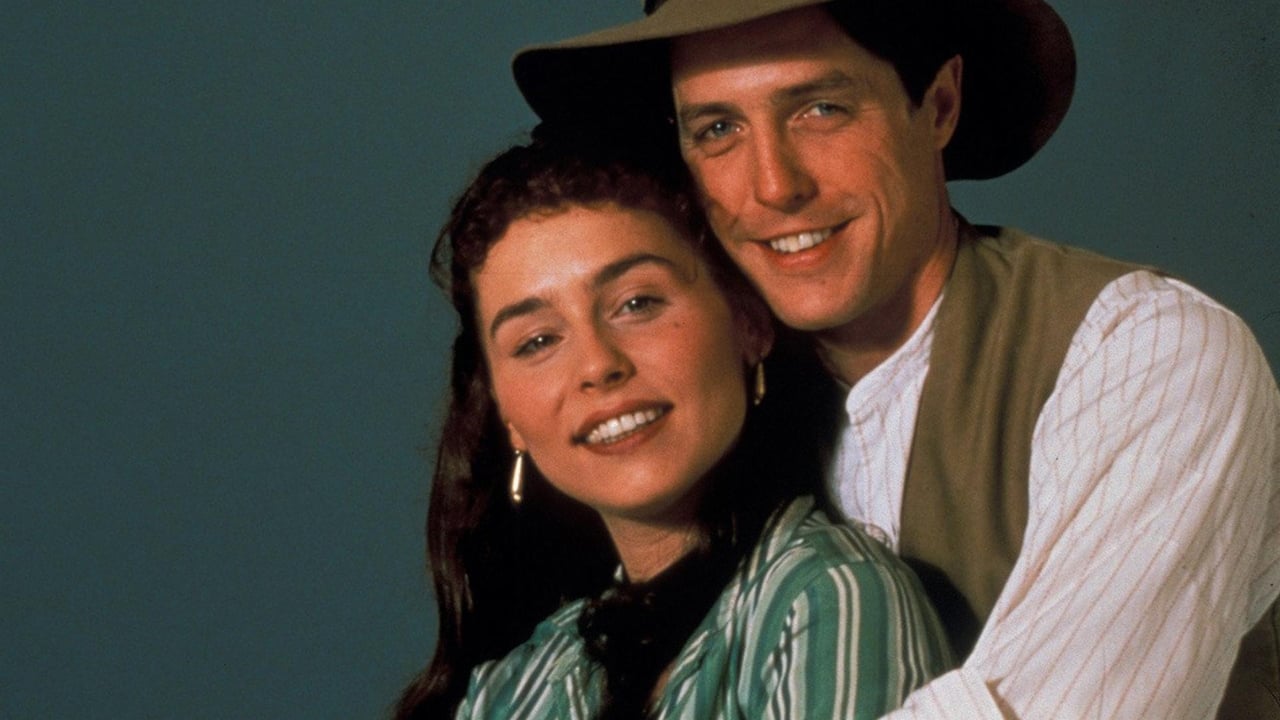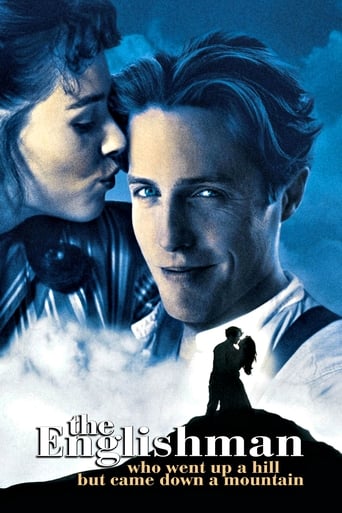



Really Surprised!
Entertaining from beginning to end, it maintains the spirit of the franchise while establishing it's own seal with a fun cast
View MoreIt really made me laugh, but for some moments I was tearing up because I could relate so much.
View MoreWhile it is a pity that the story wasn't told with more visual finesse, this is trivial compared to our real-world problems. It takes a good movie to put that into perspective.
View MoreBy established convention in Britain, a mountain has to be at least 2000 feet high, lesser summits being referred to as hills. According to an earlier convention, however, a summit only needed to be 1000 feet high to be called a mountain; this explains the presence on Leith Hill in Surrey of a tower built by an 18th-century landowner. The hill stands 965 feet high, and the eccentric gentleman believed that if he built something on top to elevate it above the magic thousand he would also elevate its status from Leith Hill to Leith Mountain, making it the only mountain in Surrey. (And, indeed, anywhere in south-east England). "The Englishman Who Went up a Hill but Came down a Mountain" tells a rather similar story. It is set in the South Wales of 1917. Two English cartographers, George Garrad and Reginald Anson, arrive in the village of Ffynnon Garw to measure the height of the local mountain. When they discover that it is only 983 feet high, the inhabitants (who had always believed it to be a true mountain) are deeply upset by what they see as an insult to their local patriotism. Led by the Reverend Jones and Morgan the Goat, the landlord of the village inn, they come up with a scheme to delay the cartographers' departure for long enough to enable them to build an earth mound on top of the hill, adding the missing seventeen feet to its height. Nearly all the villagers go along with this idea, with the local schoolmaster being about the only dissident. Garrad- middle-aged, irascible, pompous and disdainful of the local people- is a typical authority-figure, although his shy, diffident younger colleague Anson has a much friendlier relationship with the villagers. The two ringleaders of the mound scheme are also strongly differentiated in personality. The Reverend Jones, minister of the local Nonconformist chapel, is a tub-thumping hell-and-brimstone preacher, whereas Morgan the Goat is not only a freethinker but also a heavy drinker and a womaniser. Normally the two men cordially detest one another, but now they are united in their desire to get the better of what they see as the forces of English authority. (A sub-plot deals with a romance between Anson and Betty, one of Morgan's many discarded mistresses; his nickname "the Goat" refers to his sexual prowess). The film may have been inspired by some of the Ealing Comedies such as "Whisky Galore", "The Titfield Thunderbolt" and "Passport to Pimlico", all of which dealt with the members of a tight-knit community (Scottish island, English village or working-class London neighbourhood) working together against the forces of authority. Films on a similar theme have cropped up in the British cinema ever since ("Brassed Off", set in a Yorkshire mining village, is another example from the mid-nineties). Films like these are always going to be popular, because everyone loves the idea of an underdog taking on the System. This, however, is one of the weaker films in this genre. The reason, I think, is that whereas it is ostensibly about loveably eccentric Welsh villagers doing battle with the heartless, officious English bureaucracy, it is really about loveably eccentric Welsh villagers at war with reality. Garrad might be a pompous English stuffed shirt, but even the most strident Welsh patriot would have to admit that it is not Garrad's fault, or even the fault of the English nation, that the hill of Fynnon Garw is less than a thousand feet high. The villagers might dismiss their sceptical schoolmaster as a traitor, but actually his arguments make a lot of sense. If God, or Nature, decreed that their hill should only be 983 feet high, why not just accept the fact instead of going to a lot of useless effort to pile up a heap of earth which will only get washed away in the next rainstorm? This argument becomes all the stronger when one considers that one man actually dies in the struggle to build the mound. The villagers hail him as a martyr, but then more people have been martyred in the cause of stupidity than in any other. At least the villagers in "The Titfield Thunderbolt" and "Brassed Off" were trying to do something of tangible benefit to their communities. "The Englishman Who...." was acclaimed by some, but when I first saw in in the cinema in 1995 it struck me as a rather tiresome one-joke comedy. Its one joke, the idea of doing something completely pointless in the belief that one is putting one over on the Establishment by doing so, might have been humorous in the context of a brief comedy sketch. (There is something rather Monty Python about trying to turn a hill into a mountain by piling soil on top). To turn this story into a full-length feature film is just making a mountain out of a molehill. 4/10
View MoreI'm pretty much in line with the 'mainstream' reviewers for fav flics; Lawrence, Quai, Dr. Z, 2001, Dr Strangelove, Silence, LA confidential, etc., etc.There are however, many lessor lights, that are so much worth watching. Some are by age and perspective. I loved 'Boat that Rocked', but if you are not of the 60's - 70's R&R era I could see why others would not.This movie 'The Englishman', is rare one. An enjoyable bit of fluff, filled with English humor, fit for all ages, but sharp enough to keep one entertained throughout the movie, which, itself is timeless.If you wish for a lighthearted enjoyable evening with any and all, that you would wish to share a movie night with, this is one. For certain.
View MoreThe Englishman Who Went Up A Hill But Came Down A Mountain is a decent film. It is charming and features a wonderful cast. The story is interesting and quite entertaining. However, the premise would have served better for a short film rather than a feature film. Like many of Woody Allen's movies, the small plot is stretched to suit a film far too long for the idea. This film should have been 40 or so minutes long. Even 70 minutes would have been too long for this type of story. Even though it's a pretty short film in its own right, it was still too long for its story. Aside from that one flaw though, it was a quaint and enjoyable film with a heart and hilarious characters.
View MoreChristopher Monger directed this droll comedy-drama set in 1917. A young cartographer named Reginald Anson(played by Hugh Grant) comes to a small south Wales village to measure its renowned mountain of which the locals are most proud. They are then dismayed to learn that it is now technically a hill, being short by a small margin. Reginald tries to calm them by assuring that he doesn't suspect fraud, merely that erosion has occurred, so the village leader(played by Colm Meaney) gets the beautiful Elizabeth(played by Tara Fitzgerald) to beguile the cartographer to stay in town long enough for them to build the mountain up to the required length, an effort which will change their lives... Most appealing film for those who like witty and dry humor, and a most original premise is played out well, despite that cumbersome title!
View More